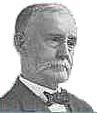
(J. R. Miller, "The Building of Character" 1894)
"I have much more to say to you—more than you can now bear." John 16:12
All learning is slow. This is true in proportion to the importance of the lessons. We learn some things quickly—but they are not the things which are of greatest value. Mere head-lessons are gotten more easily than heart-lessons. We may memorize the beatitudes in a few minutes—but it takes many years to learn to live them! And in spiritual and moral lessons—living is the only learning which counts. Anyone can memorize a code of ethics by heart, without much effort. But to get the faultless code wrought into conduct, disposition, spirit, and character—is the work of a lifetime!
In life-teaching, the lessons are given only as fast as they are learned. Our Master will not teach us more rapidly than we can live His lessons. It was in the midst of His most confidential talk with His disciples, that He said He had much more to say to them—more than they could now bear.
Spiritual truths can be received—only as we come to the experiences for which they are adapted. There are many of the divine promises which we can never claim, and whose blessedness we cannot realize—until we come to the points in life, for which they were specially given.
For example: "He will conceal me in His shelter in the day of adversity; He will hide me under the cover of His tent; He will set me high on a rock." This word can mean nothing to the child playing amid the flowers, or to the young man or woman walking in sunny paths—without a care or a trial. It can be understood only by one who is in the depths of trouble. In the days of gladness, when there is no trouble, no pain—there are many of God's Words which seem to have no meaning for us. We do not need them. They are for times of sorrow—and we have no sorrow. They are lamps for the darkness—and we are not walking in darkness. They are for days of pain and loss—and we have no pain, and are called to endure no loss.
There is a large part of the Bible which can be received by us, only when we come into the places for which the words were given. There are promises for weakness—which we can never get, while we are strong. There are promises for times of danger—which we can never know, in the days when we need no protection. There are consolations for sickness whose comfort we can never get, while we are in robust health. There are promises for times of loneliness, when men walk in solitary ways—which never can come with real meaning to us, while loving companions are by our side. There are words for old age—which we never can appropriate for ourselves along the years of youth, when the arm is strong, the blood warm, and the heart brave.
Christ says to us then, "I have much more to say to you—more than you can now bear." We could not understand these lessons now. But by and by when we come into places of need, of sorrow, of weakness, of failure, of loneliness, of sickness, of old age—then He will tell us these other things, these long-withheld things, and they will be full of joy for our hearts!
There are beatitudes for certain conditions. "Blessed are those who mourn—for they shall be comforted." But only those who are in sorrow, can experience the blessedness of divine comfort. Thus all the treasures of the Bible are ready to open to us—the moment we have the experience which the particular grace in them is intended to supply. Hence it is that the Bible is never exhausted. Men read it over and over again, and each time they find something new in it—new promises, new comforts, new revealings of divine love. The reason is, they are growing in experience, and every new experience develops new needs, and brings them to new revealings.
Thus, as life goes on, the meaning of Christ's words come out clearer and clearer, until the child's heedless repetition of them, becomes the utterance of the faith and trust of the strong man's very soul.
This is the great law of divine revealing. We learn Christ's teaching—only as fast as we are able to bear it. So we may wait in patient faith when mysteries confront us, or when shadows lie on our pathway, confident that He who knows all—has in gentle love withheld from us for the time, the revealing we crave, because we could not yet endure the knowledge.
No comments:
Post a Comment